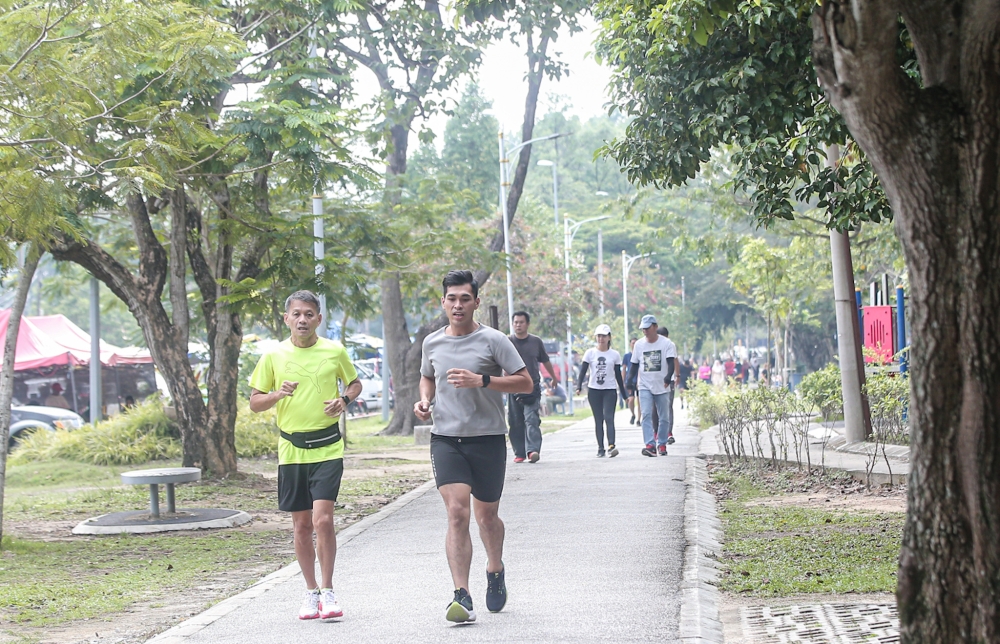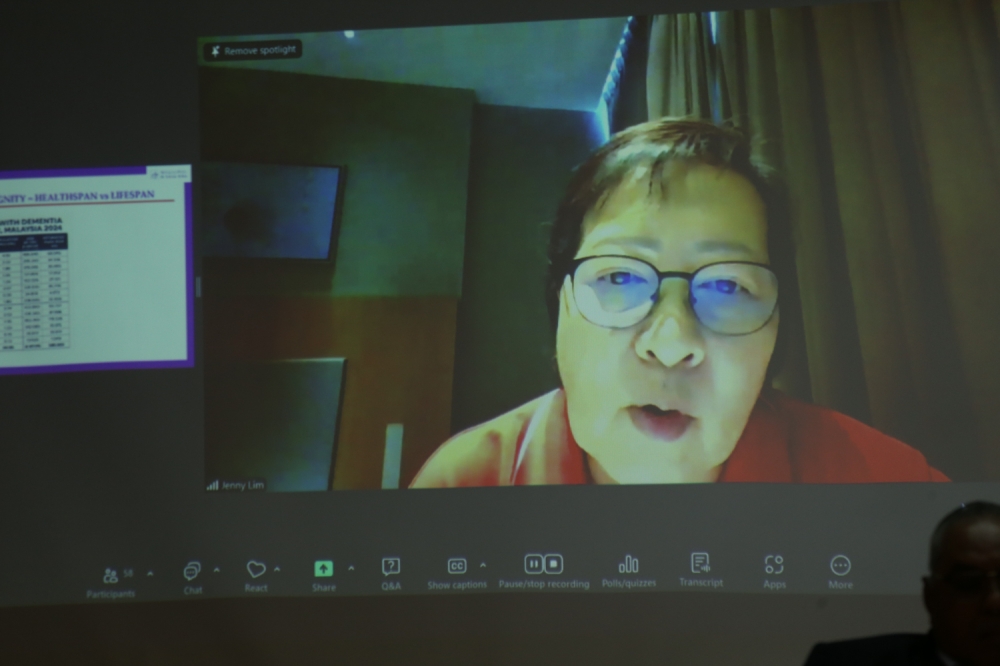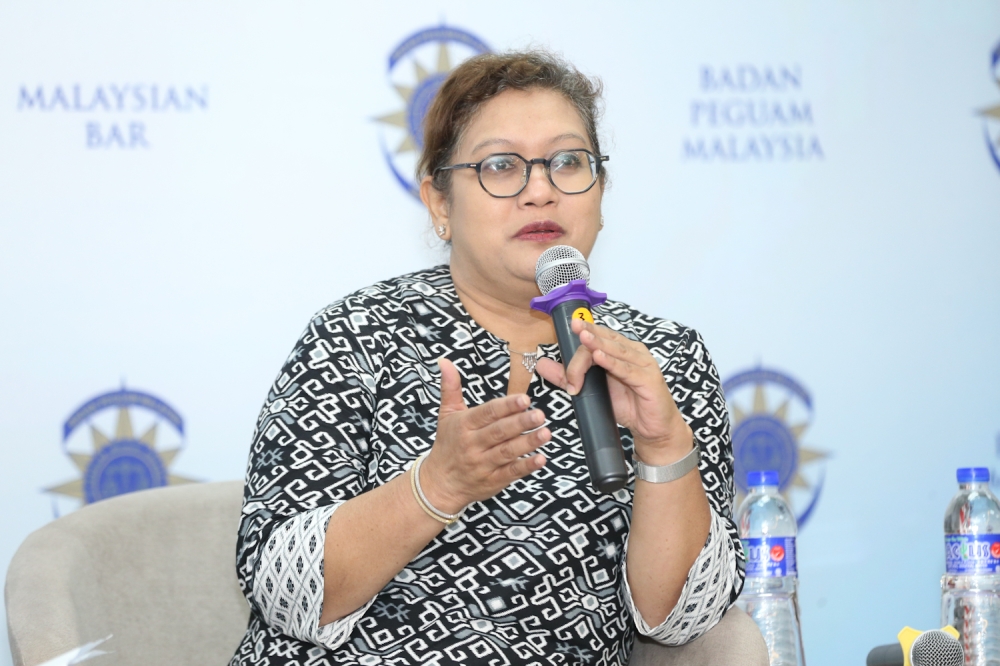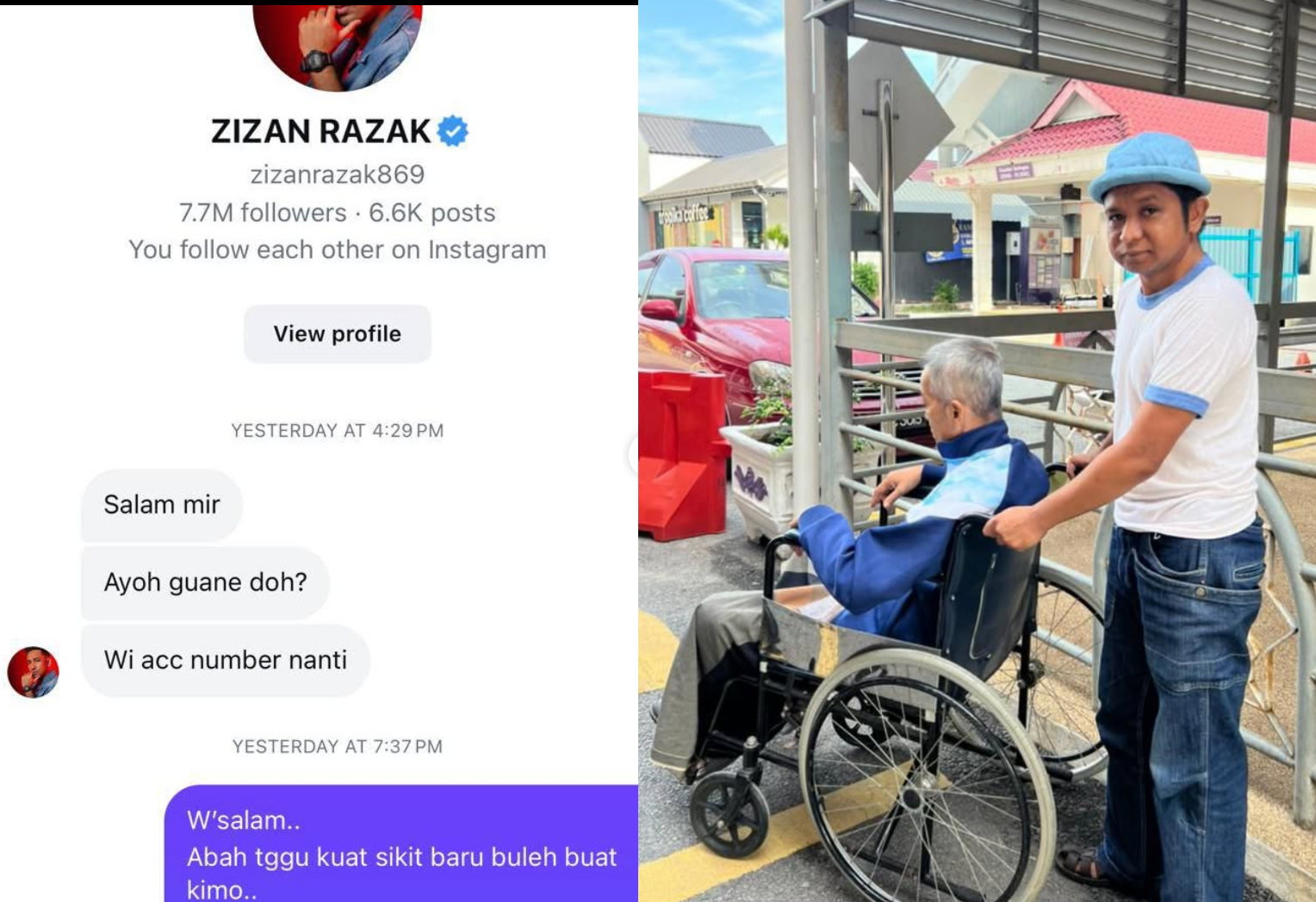- Malaysians are living longer, with average life expectancy rising to 75.2 years in 2024, but many spend more years in poor health due to chronic conditions.
- Malaysians should start a healthy lifestyle earlier if they do not wish to be sick as they get older.
- Not all older persons will have dementia. Diabetes, high cholesterol, hypertension, being overweight and not being physically active can all increase chances.
KUALA LUMPUR, Aug 8 — How long do you hope to live? Up to 100 years old?
In Malaysia, a baby born in 2024 is expected to live up to 75.2 years on average, up from 74.5 years in 2014, according to the Department of Statistics Malaysia’s latest figures.
So Malaysians are expected to live longer now.
But speaking at the recent “Twilight Talks” forum organised by the Bar Council’s MyBar Ageing Rights Advisory Committee, Prof Dr Shahrul Bahyah Kamaruzzaman of University Malaya’s Faculty of Medicine said there is now a huge gap in Malaysia between “lifespan” and “healthspan”.
While the former refers to the total number of years someone lives, the latter refers to the total number of years someone lives in good health, without any chronic diseases and without any disabilities.
Dr Shahrul Bahyah said these factors may shorten your healthspan:
- Diabetes, hypertension, high cholesterol
- Obesity
- A more sedentary lifestyle or not being physically active
- Access to healthcare (knowing where to go when you are ill or if you are a caregiver; whether you live in a rural or urban area)
- Whether you can afford healthcare
So you may still continue to grow older, but your quality of life is lower. In other words, you live longer, but you spend more years being sick.
She said there is a need to encourage “healthy ageing” from a younger age, by encouraging Malaysians to live a healthy life.
This is because Malaysians could start having these chronic illnesses in their 30s, 40s and 50s, and this can increase your risk of having dementia.
“And we’ve done countless research that says, if you are between 45 to 55, with diabetes, hypertension, high cholesterol, obesity and sedentary lifestyle … 58 per cent of them tested for mild pre-cognitive impairment, which is a pre-dementia state,” she said.
Dr Shahrul Bahyah, also president of Malaysia Healthy Ageing Society, said Malaysia must have policies to support healthy eating and healthy living — even from childhood.
“As we know, pre-dementia is impending on all of us here if we are not careful,” she said, stressing the need to have strategic interventions for issues such as smoking; sugar and salt intake; nutrition; children’s meals at schools; and childhood obesity.

Having an active lifestyle can help in ensuring quality of life when we grow older. — File picture by Farhan Najib
Getting the facts straight: Dementia is not a disease that every older person gets
Dr Shahrul Bahyah, who is also Universiti Malaya Medical Centre senior consultant geriatrician, said festive seasons advertisements in Malaysia used to show an older person as being absent-minded, forgetful or needing help.
She said this stereotype of older persons needs to change: “We need to rebrand, reimagine ageing as to what we are now and how we want it to be, and that is something we really need to be working harder on.”
She said ageing or growing older is a risk factor for dementia, “but not all people who age develop dementia”.
It is more common for those aged 65 and above to have dementia, but younger people can also have dementia.
Symptoms of dementia may include memory problems and being confused even in familiar places, according to a fact sheet by the World Health Organisation;
WHO says there is no cure for dementia now, and the other risk factors are:
- having depression
- being socially isolated
- smoking
- drinking too much alcohol
Dr Shahrul Bahyah said many older people who are socio-economically disadvantaged may however have higher risk of dementia, and will need to be diagnosed and get access to care.
For some older persons, they may be living alone and are depressed, as they have lost their income, status and family, she said.
She said their depression — which may look like dementia but is actually not dementia — is a condition that needs to be diagnosed and treated.
Dr Shahrul Bahyah said older persons can become delirious (unable to speak or think clearly because they are confused) because of medications, but they “must never be misinterpreted as having dementia” and could be treated by having their medications adjusted.

Speaking remotely at the forum, Alzheimer’s Disease Foundation Malaysia’s (ADFM) Jenny Lim said many care homes in Malaysia do not have care workers that have the experience and skills to care for persons with more advanced stages of dementia. Aug 1, 2025. — Picture by Raymond Manuel
Why Malaysians should care about dementia (Hint: Loved ones may need care)
At the same forum, retired UK-trained nurse Jenny Lim from Alzheimer’s Disease Foundation Malaysia (ADFM) said more than half a million persons are estimated to be living with dementia in Malaysia as of 2024.
The top three states in Malaysia in terms of the number of persons with dementia are Selangor, followed by Johor and Sabah, she said.
She said ADFM tries to provide support for the simplified three main stages of dementia: early stage, midstage and advanced stage.
The most challenging stage is the midstage, which is where persons with dementia may have “behavioural and psychological symptoms of dementia” (BPSD) due to their unmet needs.
At this stage, she said many family members who are caregivers call ADFM while crying on the phone as they seek help, such as financial help as they need to get caregivers at home, or to find suitable care homes.
“Because at this moment, the majority of nursing homes are not able to cater to them because of their unmet needs and skill set readiness is not there,” she said, referring to Malaysia’s lack of sufficient care workers who are trained to care for persons with dementia.
“The increasing number of calls that we get every day is overwhelming. Majority of people come to us when they have nowhere to go. They will try their best to do what they can from what they know by Googling. There are things you Google but in reality you are not able to get that kind of help,” the certified ADFM Dementia Care Skill Trainer.
While ADFM as a non-profit organisation does its best to offer support to caregivers, Lim said the Malaysian government’s support is needed to train more volunteers to help those with dementia and to set up more centres to cater to those at the BPSD stage.
Dr Shahrul Bahyah noted that the over half a million figure are only of Malaysians who have been diagnosed with dementia and are accessing services, indicating that there are more who may have dementia but have not been diagnosed.
She said the first memory clinic service was set up between UMMC, Hospital Kuala Lumpur, and Hospital Sultanah Aminah in Johor for those with dementia in 2004, and noted that there is now a six-month waiting list for the memory clinic service.
She said Malaysia currently lacks seamless and integrated care for persons with dementia and also the ageing population generally, and there also needs to be coordination among government ministries of the good work being carried out.
For example, she said there is a lack of capability at the community level now to effectively diagnose dementia for those who have started to have memory loss.
Instead, the tendency is to go to the tertiary level or to medical specialists to get a dementia diagnosis, but this process would take time, she said.
She said there should be no stigma and there needs to be safe places in neighbourhoods for people with dementia to access care.
Wishlist of policies to help Malaysia
Dr Shahrul Bahyah listed some suggestions on what could help Malaysia:
- Legal protection to protect older people from elder abuse
- Protecting everyone’s right to access healthcare
- Policies to support caregivers and allowing caregivers to also get access for care for themselves, grants and funding
- Using the WHO’s framework to create more age-friendly cities in Malaysia (The WHO’s Global Network for Age-friendly Cities and Communities now covers 1,739 cities and communities globally, including seven in Malaysia)
“Making it age-friendly doesn’t mean it’s just for the ageing population, but it’s across the ages, and if you cover the ageing population, you will cover every ability and disability,” she said, explaining that initiatives to make communities a better place for older persons will also benefit everyone else.







